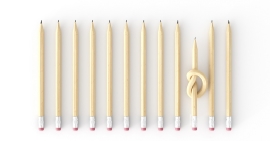I want to open an internet account, but what features does it offer?
13/04/2021
A wide range of accounts are available to us on the internet, offered by various types of institutions. As set out in the recent publication on neo-banks, before taking out financial services it is worth verifying which licence each institution uses to operate, as this influences the type of services that they can provide.
These entities, which usually operate with an electronic money institution or payment institution licence, offer what is known as payment accounts. These accounts have similarities and differences which traditional bank current accounts.
Similarities:
- You can perform all types of payment transactions.
- You will have one or more pre-paid or debit cards to spend your money as you wish.
- In some cases, an
++ Enlace Roto ++
will be assigned to you, a single code that allows you to be recognised unequivocally. As a result, you will have no problem direct-debiting bills and subscriptions, or crediting your wages. Whether the IBAN is Spanish (beginning with ES) or belongs to one of the Single Euro Payments Area (SEPA) countries, you will be able to make transfers within Spain and to SEPA countries.
Differences:
- The balance you deposit in these payment accounts is not immediately reimbursable, as is in fact the case with a current account. Generally, limits are set on spending, top-ups (daily, monthly or annual maximum amounts) and on the total balance that can be held in the account. These operating limits are due to several legal reasons.
- As these institutions do not normally have physical offices or an ATM network, the cash services they offer are limited. Generally, cash deposits cannot be made, although some institutions have reached agreements with retailers to this end.
- For this same reason, to be able to use this account and the associated means of payment, you must first top-up the balance. Here you will generally need an existing card or current account in a traditional bank.
- Often these accounts adhere to a freemium model, whereby they will offer you a basic services package free of charge and you will have to pay for an upgrade to these products or services.
- There are no cheques or passbooks.
- The balances deposited are not covered by the Deposit Guarantee Scheme. However, these institutions are obliged to meet certain guarantee or safeguard requirementsAbre en ventana nueva such as the depositing of balances in a separate account or their investment in safe, liquid and low-risk assets.
When looking into opening a payment account, you should thus carefully consider whether you want to hold your savings, use the account for day-to-day transactions, or both. Before deciding, weigh up what different institutions are offering.



